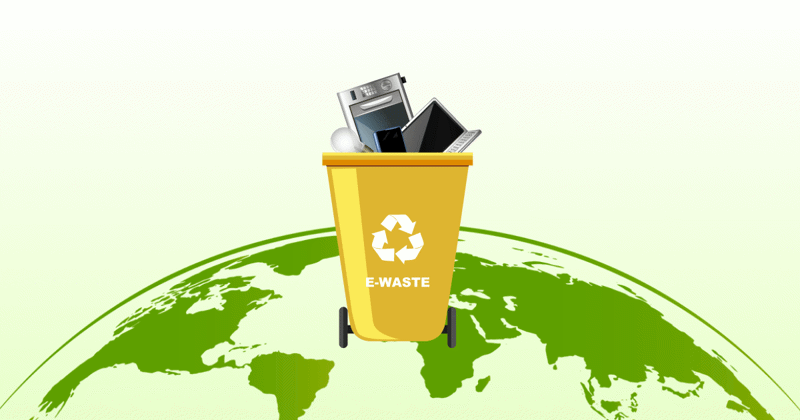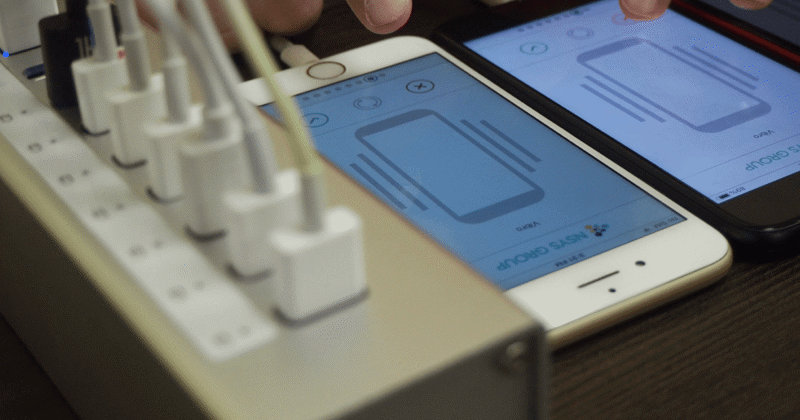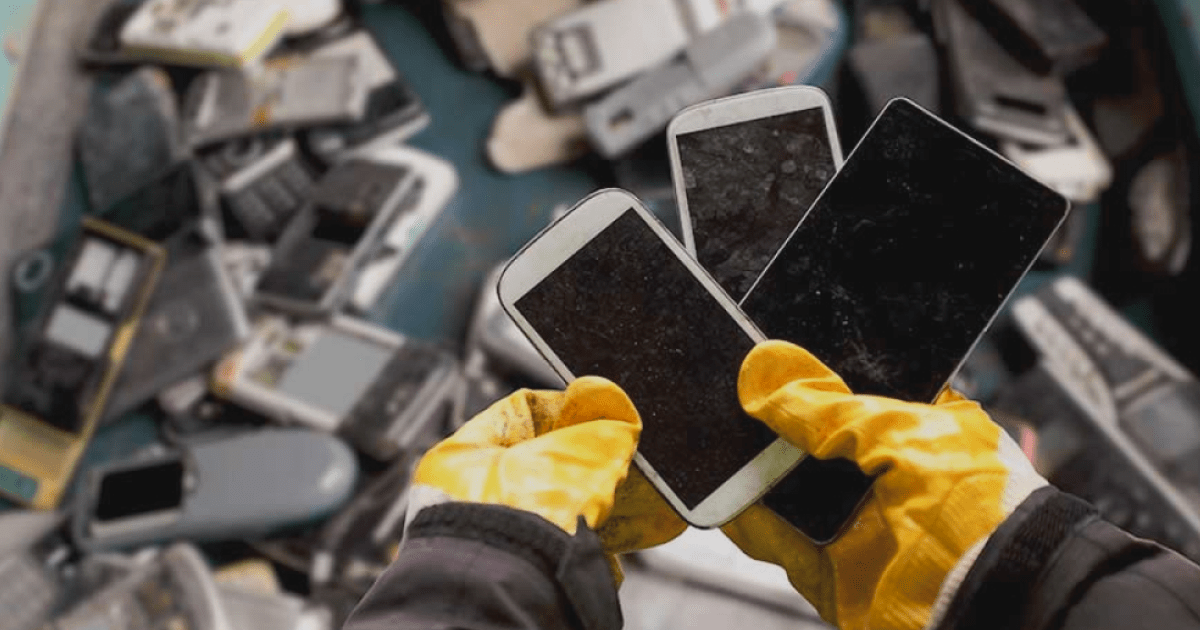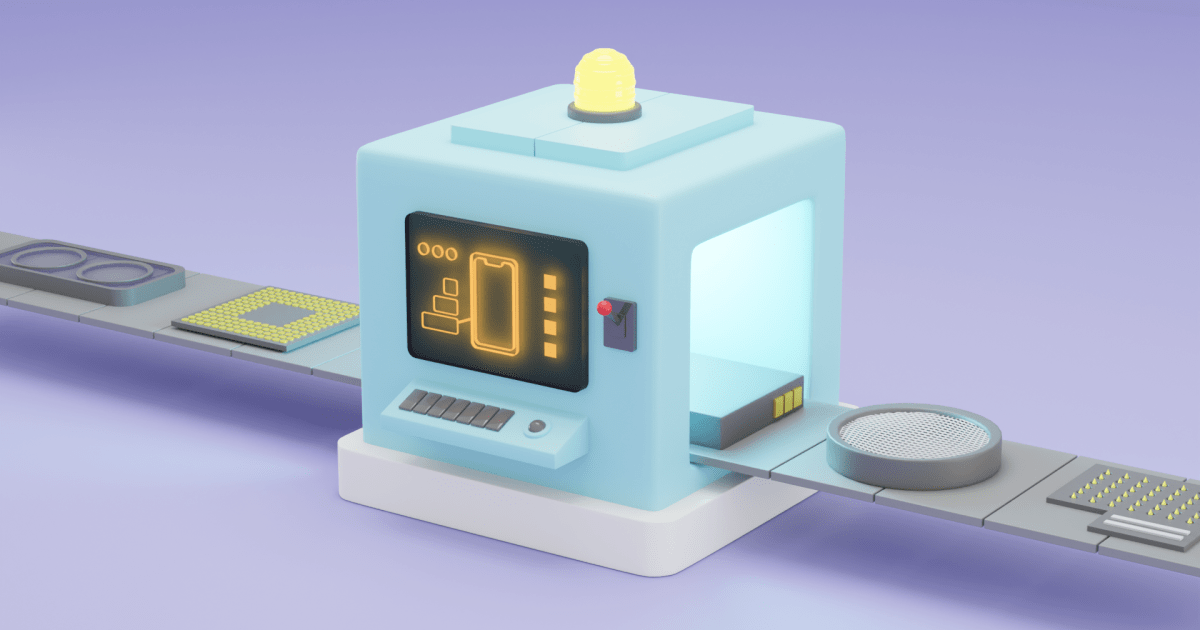Today, e-waste is one of the fastest growing and most hazardous types of waste, posing a global business and environmental challenge. There are plenty of ways for e-waste management helping to reduce environmental impact as well as boost the economy. The main one is of course the secondary use of devices, which in turn works efficiently thanks to a properly organized reverse supply chain (RSC). What is reverse logistics and how do companies make money on it? Let's find out!
New life for old devices
Trends in electronics are changing as quickly as fast fashion and fast food. It makes more and more people turn to the secondhand device markets to save money and help the environment. In particular, it thrives in developing countries with products such as laptops and smartphones having second or third lives. Yet eventually all these gadgets or appliances will end up in a landfill.
It is probably no secret to anyone that simply throwing old equipment away is a bad decision. In many countries, this is not only unsustainable, but illegal. If the device is in good condition, no doubt it will be as environmentally friendly and cost-effective as possible to resell it. But what to do with equipment in poor condition beyond repair? It is where reverse logistics comes into play.
The role of reverse logistics in secondhand device market
Reverse logistics is an important and often overlooked part of supply chain management. It deals with the movement of goods from the consumer back to the retailer or manufacturer either to inspect or remanufacture for resale or disposal.
The device after the end of its service has several ways:
- the use of individual parts of the device (the insides of obsolete gadgets can often be seen in the electronics markets);
- the use of individual parts as raw materials;
- processing and disposal of toxic waste.
With the first point everything is pretty much clear. The last two are tricky ones. There is a need to check device locks, iCloud locks, ownership status and remove data from the device before turning in a used phone. When it comes to the recycling process, the diagnostic issues and the erasure or factory reset methods arise.
All these problems are solved by numerous intermediaries performing their own functions in the reverse logistics chain. Just imagine how difficult but profitable this business is.

The environment importance of smartphones secondary use
Electronics manufacturing is a very environmentally harmful industry. According to the UN report on e-waste, 50 million tons of e-waste is produced globally in one year. This is the weight of all aircraft ever built! Only 20% of them are recycled. Analysts warn that if the same dynamics continues by 2050 this amount will increase to 120 million tons per year. Purchasing used devices can significantly reduce this environmental burden.
Moreover, smartphones belong to the category of items that are subject to handling and disposal in a special way. Devices must be diagnosed correctly and disposed of in accordance with international standards. Otherwise, problems cannot be avoided.
Do you know for example how many liters of water are polluted by just 1 improperly disposed battery? 400! One phone is capable of causing damage to an area of more than 20 square meters. Multiplying their number by this indicator, it is easy to see very gloomy prospects.
The process of minimizing the technogenic impact on the environment and the transition to clean technologies is no longer a trend, but an inevitable reality. Companies are finding new ways to use discarded products through resale, reuse, repair and recycling. Materials that were once considered waste are becoming valuable again.
Benefits of secondary use for business owners and buyers
From all of the above, the environmental profit of giving devices a second life is obvious, but it is very beneficial in terms of business as well. The used device market provides people with 30-40% cheaper working devices that will last for another years to come. These devices are protected by guarantees in case the seller is reliable. Economically, the second hand business is an excellent cost-effective solution, because the margin in this market is really big compared to the new products market. Thus people get high-quality devices at a lower cost, while companies build a profitable business.
Let's look at another specific example - the contract smartphone selling system in the USA. In America, all major operators offer installment plans for smartphones. Say you want to buy an Iphone 13 Pro that costs $999. You can buy it or sign a 2 year contract to get that phone for $41.62/mo without any commission. Now you are obliged to use the services of a certain mobile operator for 2 years. The operator will make that money back from the monthly bill over time for sure. What happens after the end of the contract? Not to lose customers, the operator offers them to change their phones for new ones, if only they continue the contract. In the end, everyone wins. People get new smartphones for free, and operators earn by keeping their customers.
Recycling smartphones is also a win-win situation. Consumers receive small but money for giving of their old devices to recycle programs. And all the e-waste produced for one year, according to experts, could generate a profit of $62.5 billion (more than the GDP of most countries) if properly recycled. A ton of smartphones contains 100 times more gold than in a ton of gold ore. Draw your own conclusions.
NSYS All-in-One for your business
To sum up, it is the second-hand devices market that helps a lot to boost the mobile business and save the environment. If you work in the used device industry, you are well aware of all the problems that arise during the resale or recycling process. You probably invest in expensive certification and special equipment, disputes with suppliers and face data erasing issues. These and other problems can be solved easily with NSYS All-in-One solution.

NSYS All-in-One is a full automatization of inventory management, mobile diagnostics, data erasure, buyback & trade-in transactions, and phone grading. It includes 5 solutions that cover the whole chain of processing used, refurbished, repaired, or remanufactured devices.
And now all these functions are available with our new Reeva robot. Reeva is a unique robot on the market in terms of price/functionality ratio; the real revolution in cost-efficiency for both retailers and wholesalers.
Request a free demo today to increase your profit and save the environment!
Also read our article on R2 certification and partnering with certified electronics recyclers.






